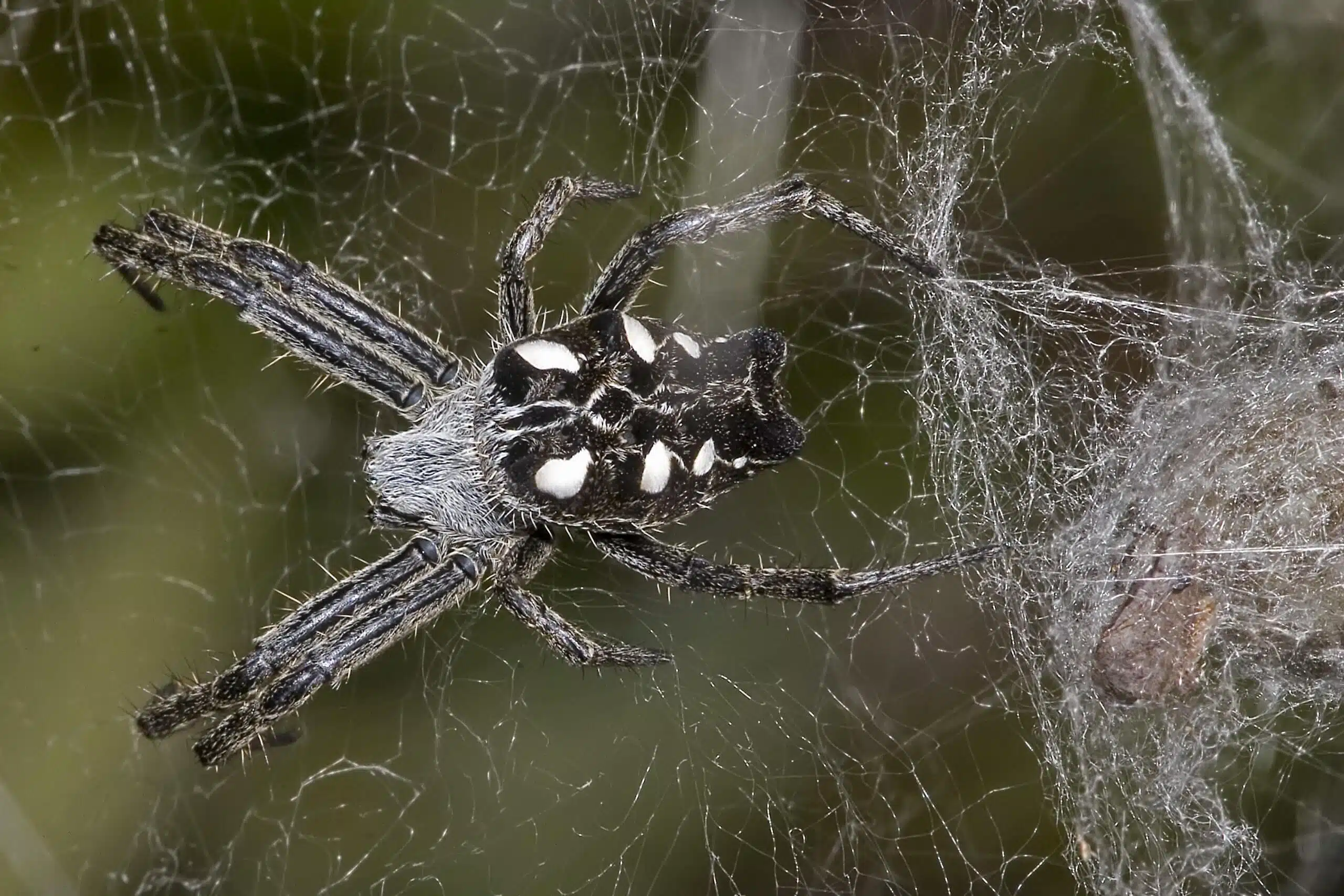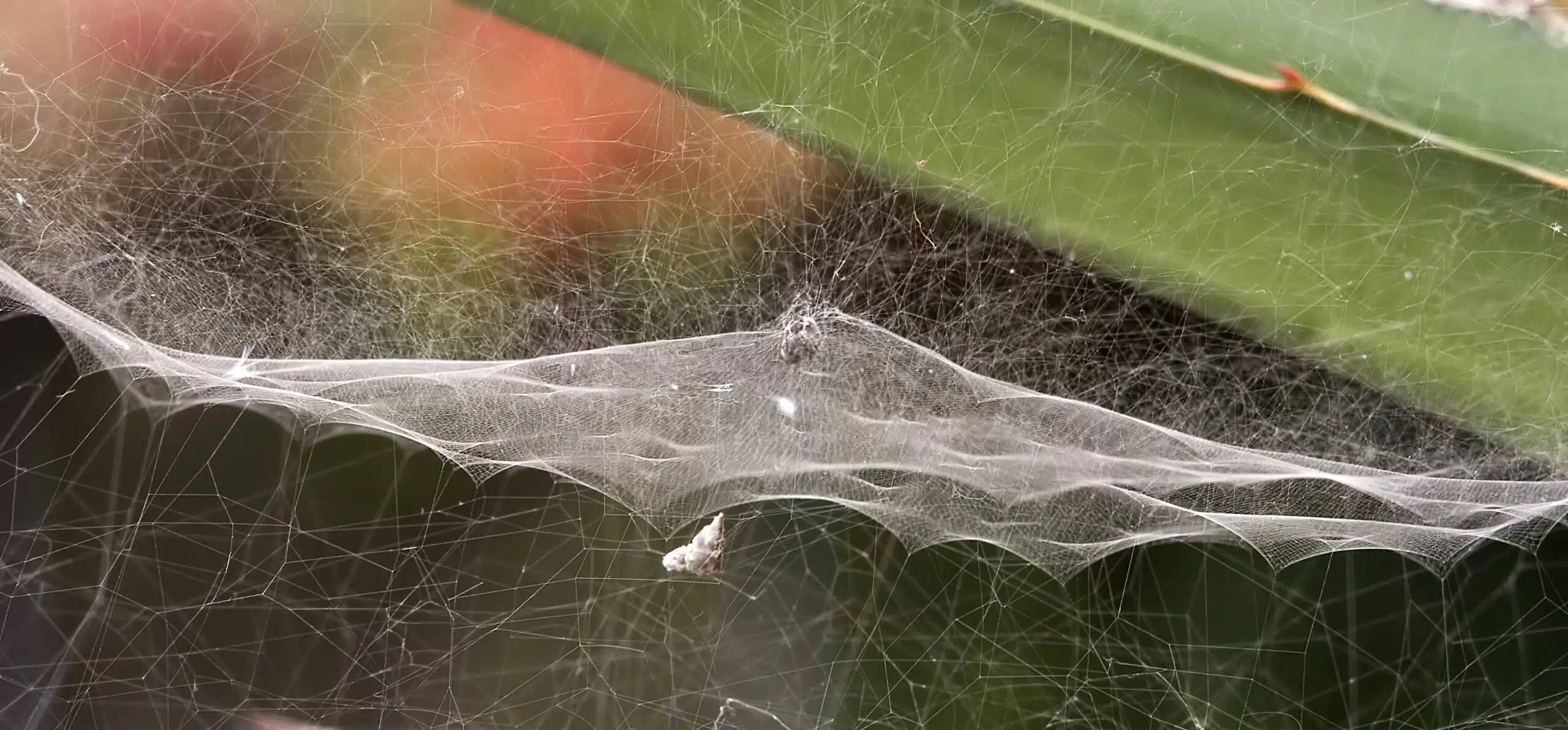A positive boost to the spider's reputation: a new study found that a species of spider - also found in Israel - can protect tomatoes from common pests

We all know spiders suffer prejudices. What was not said about them? that they are disgusting, evil, cannibals - and even they are feeding on entire human families (In keeping with the tradition of misleading and inflated headlines for articles about spiders). But new research may improve the public relations of these little creatures - and teach us about their special abilities.
in English Studies, conducted in collaboration with Ben-Gurion University in the Negev, it was found that a species of common spider can be used as a natural pesticide for tomato crops: these spiders live in "communes" with the help of which they produce large webs - which trap the various pests.
Me and the guys - the spider version
Plants, and in particular edible field crops - exposed for different types of pests, such as moths, aphids, whiteflies and even slugs. The tomato crops, on which the research was focused, suffer especially from a species of moth called Tota absoluta (Absolutely all), which is present in about 60 percent of the tomato fields in the world and which may result in a crop reduction of 100-80 percent in open areas and greenhouses. Furthermore, this moth has developed resistance to chemical insecticides.
The resistance of these insects to the chemical pesticides is quite surprising - since these are very strong substances. In addition, in recent years it becomes clear how much they are Harmful to the environment and to humans: They cause soil and water pollution, and prolonged exposure to them can cause, among other things, fertility problems, problems with the hormonal system and cancer. However, natural pest control - Harmful elimination processes using insects and bacteria - allows nature to "do its thing", in a way that does not endanger our health or the environment.
And this is where the spider comes into the picture. "Bar-Hadar gathers (Cyrtophora citricola), likes to weave webs on citrus fruit trees, hence his name; Even Drowin found such spiders on one of his travels and described them that way in one of his books," says Prof. (Emerita) Yael Lubin from the Department of Desert Ecology at the Institutes for Desert Research at Ben Gurion University's Sde Boker Campus.
The web of this spider is unique. "It is not sticky like most of the webs of the spider species (a family in the arachnid series - NN), but is made up of very dense webs, which produce a sort of wide surface in the center of which the spider sits and waits for its prey," says Lubin. "When flying insects encounter the tangle of webs - they fall on the web and the spider pulls them to it."
In addition, this species is extremely social. "The colonies of this spider are managed as a kind of common house, a commune," describes Lubin. "Each individual has his own 'apartment' - his own private network of webs - and the networks of the members of the colony are interconnected by webs." According to Lubin, the spiders do not actively cooperate in capturing the prey - but the extensive tangle of webs increases the chance of catching more flying insects. The sociability of this species is expressed in another aspect: while most spiders are cannibals, the swarming spider prefers to cooperate with its friends - and eat them only rarely.
In the new study, the researchers grew the eggs of the congealed wild boar under laboratory conditions for about 4 months. After that, they transferred 100 spiders - along with the webs they created - to the tomato seedlings, where the researchers created 20 spider colonies, to which 3 different types of prey were introduced: the harmful moth, a fruit fly of the species Drosophila hydei וBlack soldier fly (Hermetia illucens). The prey capture data was examined for about two months and at the end of it, the spiders' body mass, their body length and the diameter of their capture webs were measured.
Size does matter
In the study it was found that the clustering citrus spider is an effective insect predator, especially when it comes to Tota absoluta (and the species of the fruit fly that was tested) - when it is of medium size and larger than that; In this situation these spiders have reached 100 percent success in their pest control abilities.

According to the researchers, these spiders are able to create groups of hundreds or even thousands of webs that are connected to each other, thus preventing flying pests of various types from approaching the crops (and without harming the tomatoes, of course). That is to say, this species preys on a wide variety of pests and is not fixed on one and only meal in its menu - and therefore it is particularly effective as an exterminator.
Moreover, these spider colonies provide a substrate for sustenance and also access to prey for other species of spiders - a situation that increases even more the amount of predators in their breeding area. In the case of the moth, this is a particularly significant figure - because this harmful species is expanding its distribution in the world - among other things, because it does not shy away from extreme climate conditions, which are becoming more and more frequent due to the climate crisis.
Did you order a (spider) exterminator?
The clumping citrus fruit has been found to be effective as a biological exterminator as well In a survey conducted by Lubin In an organic orchard of clementine trees. "We found large spider colonies and monitored them over a period of about two years at various sites in Israel," she says. "Some of the colonies we followed managed to exist for about 5 years, and the ones that didn't survive - became extinct only after the grower sprayed the trees." According to her, the results of the research she conducted show that the spider colonies in question can be effective as exterminators in crops that are not sprayed.
However, and despite the optimistic conclusions - it is important to note that irresponsible use of biological control may turn the exterminator into an invasive species that causes great damage, as in the case of The cane toad in Australia. In addition, Lubin explains that pollinating insects may also be caught in the nests of the colonies, which are actually beneficial for breeding - and attention should be paid to this as well. "Therefore, it seems that the congregating bar-hedar colonies have the potential to become essential exterminators, but for this, additional studies are required in the field, also in the open field - and not only under laboratory conditions," she explains. "In a situation where these spiders will also be used as natural exterminators, we will be able to rely less on chemical substances - and reduce the soil and water pollution they cause."
More of the topic in Hayadan:
